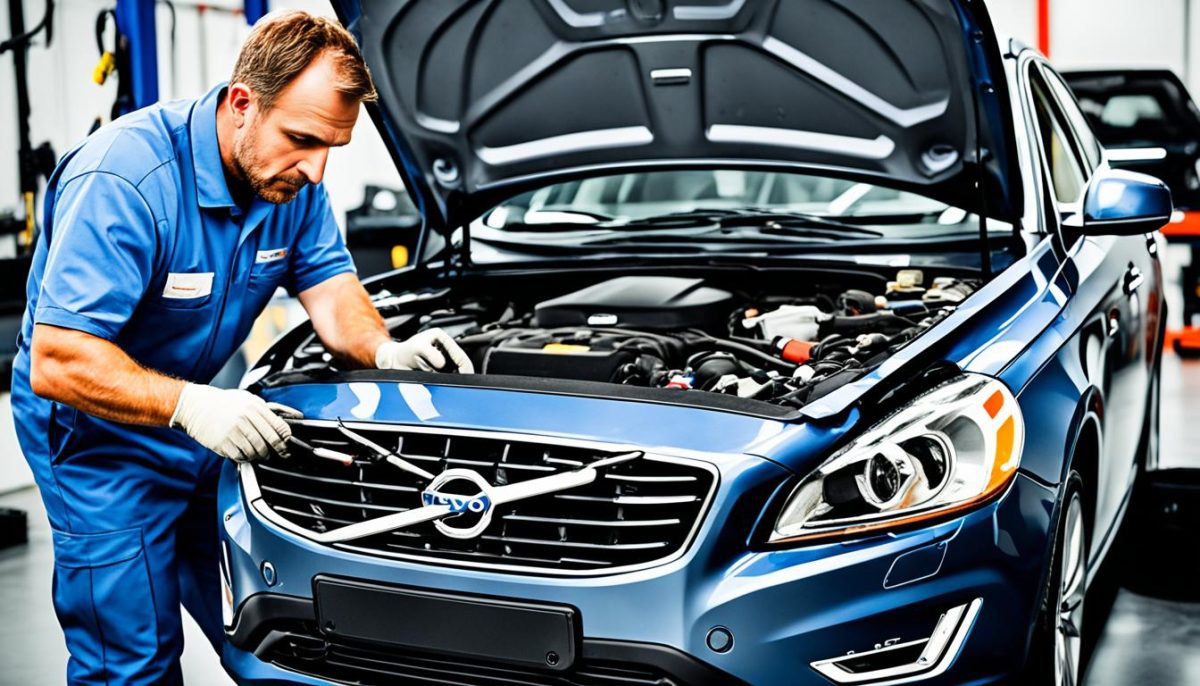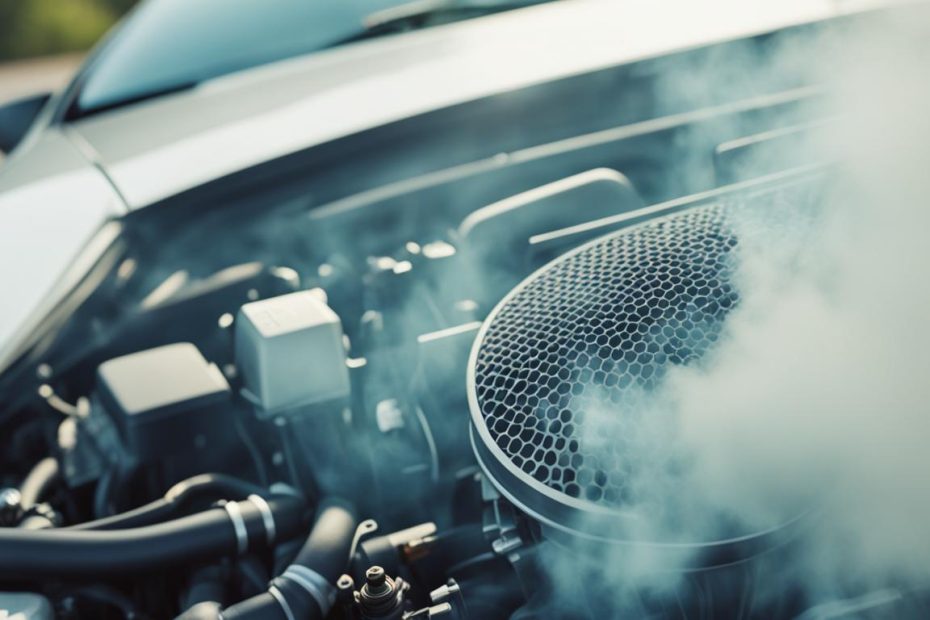Welcome to our comprehensive guide on the Volvo S60. In this article, we will explore the common problems that owners may encounter with this popular sedan. Whether you are a current Volvo S60 owner or considering purchasing one, it is important to be aware of any potential issues that may arise.
When it comes to owning any vehicle, knowledge is power. By understanding the possible problems associated with the Volvo S60, you can make informed decisions regarding maintenance, repairs, and overall ownership experience.
Throughout this article, we will delve into reliability concerns, maintenance issues, and known problems that may affect the Volvo S60. By providing you with insights and recommendations, our goal is to help you navigate the potential challenges and enjoy a smooth driving experience with your Volvo S60.
So, let’s get started and discover the common problems that you should know about when it comes to the Volvo S60.
Reliability Problems
The Volvo S60 is known for its reliability, but like any car, it can experience certain issues. In this section, we will explore the specific reliability problems reported by some Volvo S60 owners. By addressing these recurring issues and patterns, we aim to provide valuable insights into the car’s performance and overall reliability.
Common Reliability Issues
1. Transmission Problems: Some Volvo S60 owners have reported issues with the automatic transmission, such as slipping gears or rough shifting. It is essential to have the transmission checked regularly and serviced accordingly to prevent any potential problems.
2. Electrical System Malfunctions: A few owners have encountered electrical system malfunctions, including problems with the car’s lights, power windows, or audio system. These issues can be frustrating and may require professional assistance to diagnose and address effectively.
3. Suspension Noise: A handful of Volvo S60 owners have noticed unusual noises coming from the suspension system. These noises could indicate worn-out suspension components that may need to be inspected and replaced to ensure a smooth and comfortable ride.
Addressing Reliability Problems
If you are experiencing any reliability issues with your Volvo S60, it is crucial to address them promptly to avoid further complications. Here are a few steps you can take to address common reliability problems:
- Regular Maintenance: Following the manufacturer’s recommended maintenance schedule is crucial for keeping your Volvo S60 in optimal condition. Regularly checking and servicing key components can help prevent potential reliability problems.
- Professional Inspection: If you notice any unusual symptoms or noises, it is advisable to bring your vehicle to a trusted mechanic or Volvo dealership for a thorough inspection. Professional technicians can diagnose and address reliability issues more effectively.
- OEM Parts: When replacing any faulty components, it is recommended to use genuine OEM (Original Equipment Manufacturer) parts. These parts are designed specifically for your Volvo S60 and ensure the best fit and performance.
- Keep Records: Maintain a record of all repairs and services performed on your Volvo S60. This documentation can be valuable when diagnosing and addressing recurring reliability problems.
By understanding and addressing the specific reliability problems associated with the Volvo S60, you can ensure a smoother driving experience and prolong the overall lifespan of your vehicle.
Maintenance Issues
Proper maintenance is crucial for keeping any vehicle in good condition, and the Volvo S60 is no exception. In this section, we’ll explore the maintenance issues that Volvo S60 owners commonly encounter. From routine maintenance tasks to potential mechanical problems, we’ll provide insights on how to maintain and address these issues to ensure your S60 runs smoothly.
Routine Maintenance Tasks
Regular maintenance tasks are essential for keeping your Volvo S60 in optimal condition. Here are some common tasks that should be performed:
- Oil changes: Regularly changing the engine oil is important for lubrication and overall engine health. Follow the manufacturer’s recommendations for the recommended oil change interval.
- Filter replacements: Replace the air filters and cabin filters at recommended intervals to ensure proper airflow and maintain a clean interior.
- Tire inspections: Regularly check tire pressure, tread wear, and overall condition to ensure safe driving and optimal fuel efficiency.
- Fluid checks: Regularly check and top up the coolant, brake fluid, power steering fluid, and windshield washer fluid levels.
Potential Mechanical Problems
While the Volvo S60 is known for its reliability, there are a few potential mechanical issues that owners may encounter. These include:
- Electrical issues: Some Volvo S60 models may experience electrical issues, such as malfunctioning power windows or problems with the audio system. Consult with a certified technician to diagnose and address electrical problems.
- Suspension issues: The suspension system of the Volvo S60 may develop problems over time, leading to a bumpy ride or uneven tire wear. Regular inspections and maintenance can help identify and address potential suspension issues.
- Brake problems: Like any vehicle, the Volvo S60 may experience brake-related issues, such as worn brake pads or a spongy brake pedal. Regular brake inspections and maintenance are crucial for optimal braking performance and safety.
Addressing Maintenance Issues
When encountering maintenance issues with your Volvo S60, it is crucial to address them promptly to prevent further damage and ensure your safety on the road. Here are some steps to consider:
“Regularly schedule routine maintenance tasks such as oil changes, filter replacements, and tire inspections to prevent potential problems.”
“If you encounter any potential mechanical problems, such as electrical issues or suspension problems, consult with a certified technician who specializes in Volvo vehicles for accurate diagnosis and proper repairs.”
“Always prioritize safety by addressing brake-related issues immediately. If you experience any problems with your brakes, have them inspected and repaired by a qualified technician.”
By staying proactive with maintenance and addressing any issues promptly, you can ensure that your Volvo S60 remains reliable and performs at its best for years to come.
| Maintenance Task | Recommended Frequency |
|---|---|
| Oil Changes | Every 5,000 to 7,500 miles or as recommended by the manufacturer |
| Filter Replacements (Air filters and Cabin filters) | Every 15,000 to 30,000 miles or as recommended by the manufacturer |
| Tire Inspections | Every month or before long trips |
| Fluid Checks | Every month or as recommended by the manufacturer |

Known Problems Volvo S60
As with any car model, the Volvo S60 has its fair share of known problems that owners should be aware of. While the S60 is generally considered to be a reliable vehicle, there are a few recurring issues that have been reported by owners and mechanics over the years.
One common problem that some Volvo S60 owners experience is electrical issues. This can range from malfunctioning electronic systems, such as the infotainment system or the climate control, to faulty wiring causing intermittent power failures. If you’re experiencing any electrical problems, it’s essential to have the vehicle diagnosed by a qualified technician to ensure a proper fix.
Another known issue with the Volvo S60 is related to the transmission. Some owners have reported issues with rough shifting or jerky movements when changing gears. This can be caused by various factors, including transmission fluid leaks, faulty solenoids, or worn-out clutch packs. If you notice any unusual behavior with your S60’s transmission, it’s advisable to have it inspected by an experienced mechanic.
Lastly, while not as prevalent as the electrical and transmission problems, some Volvo S60 owners have also reported issues with premature wear of suspension components. This can lead to a rough and uncomfortable ride, as well as uneven tire wear. Regular inspections and maintenance of the suspension system can help prevent such issues and ensure optimal driving comfort.
